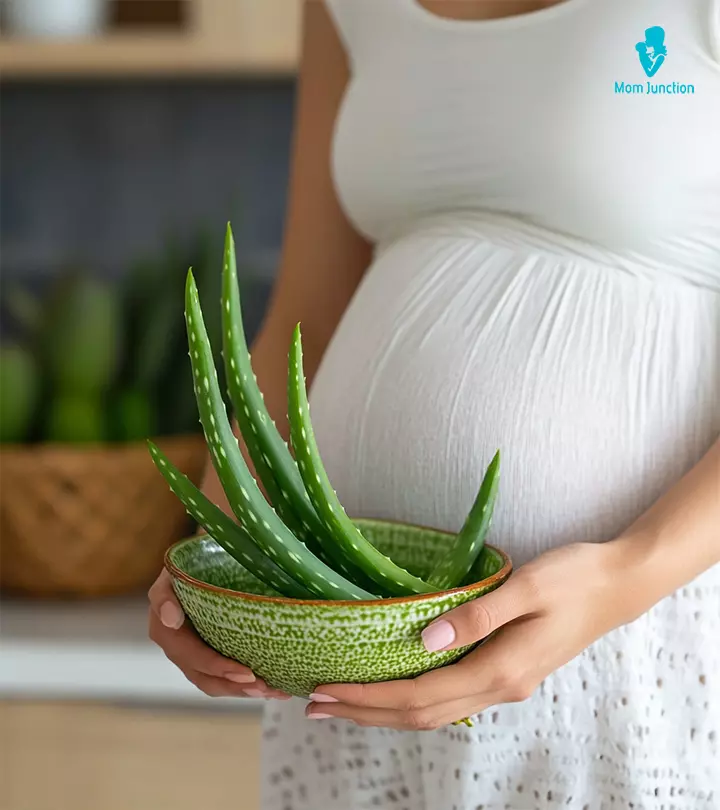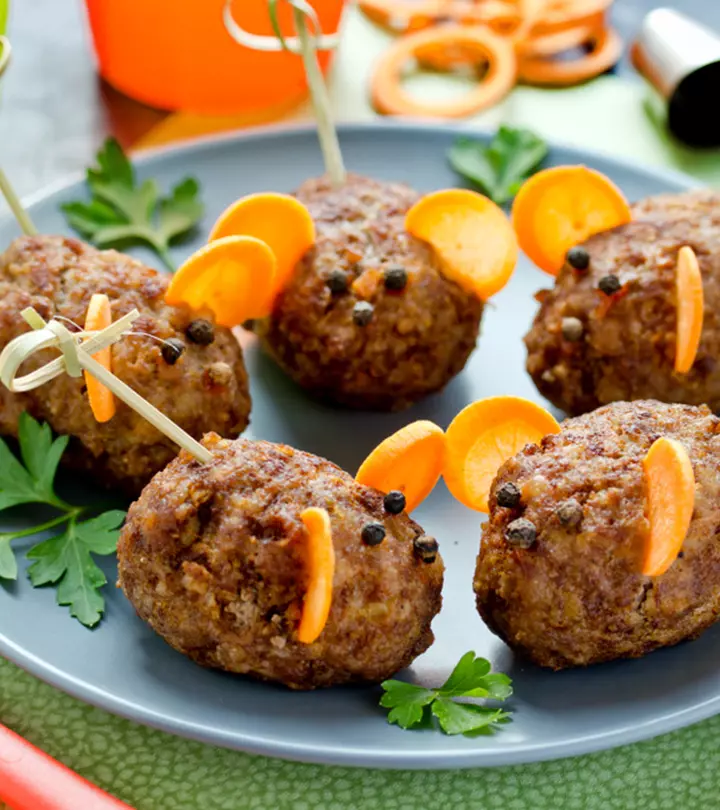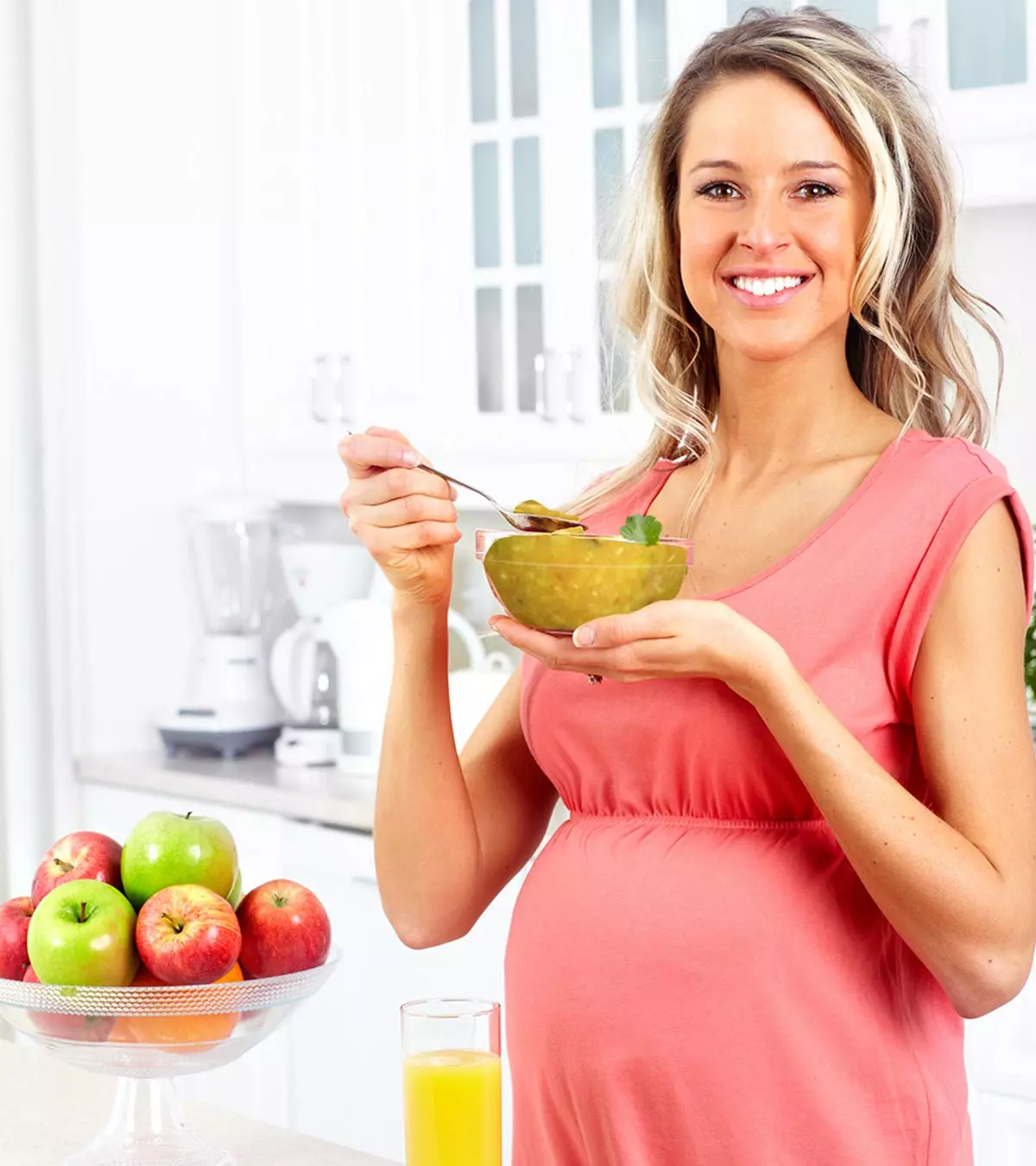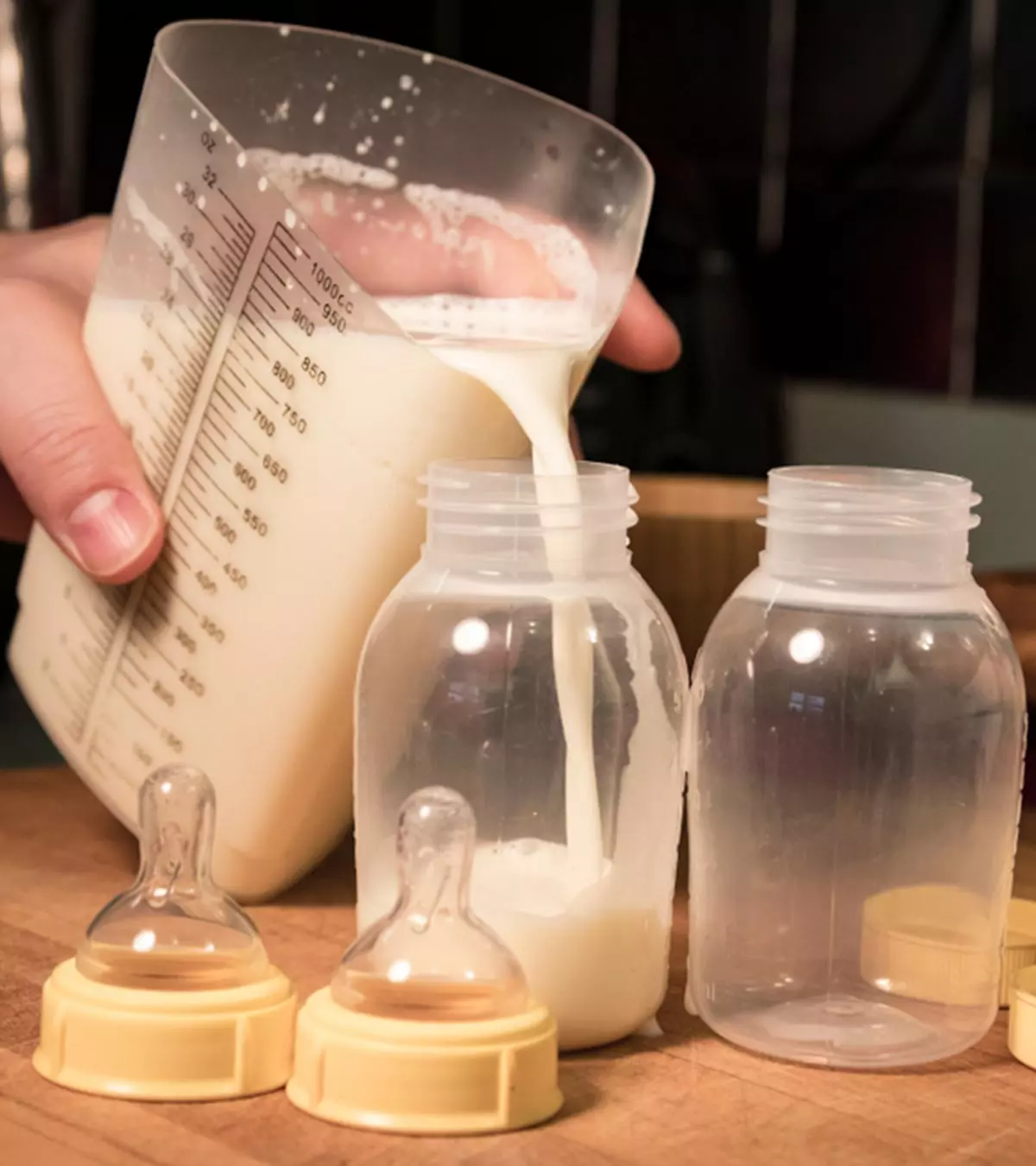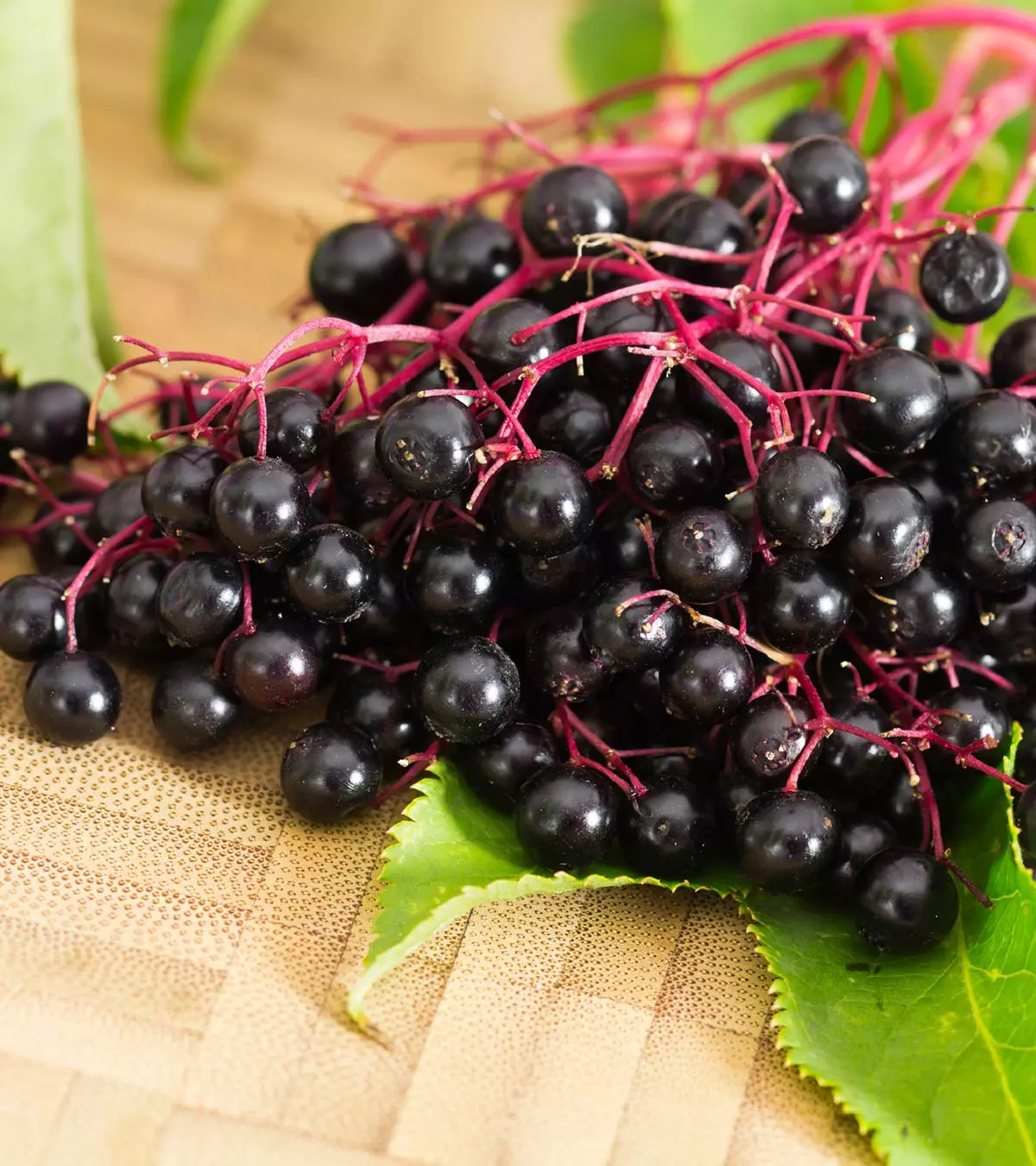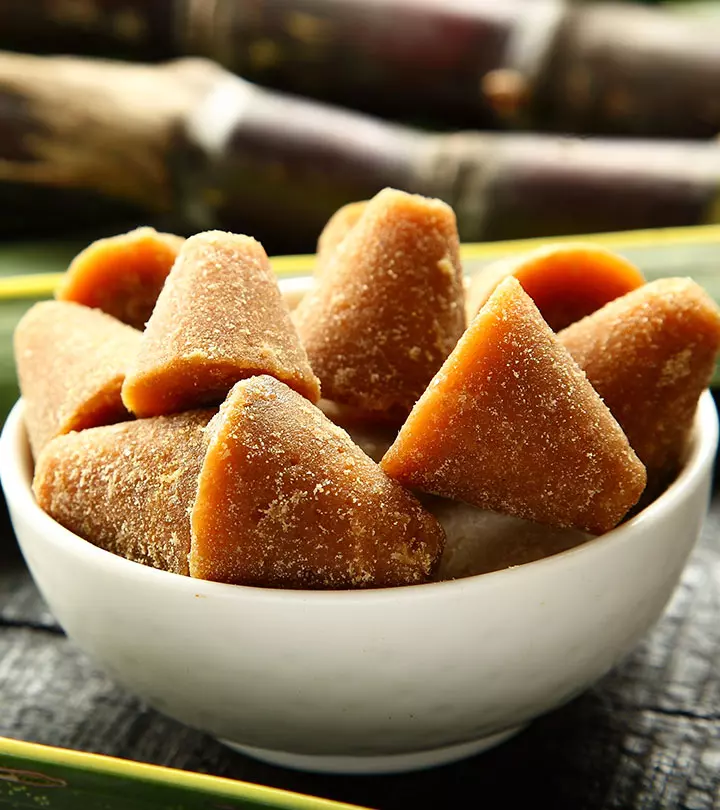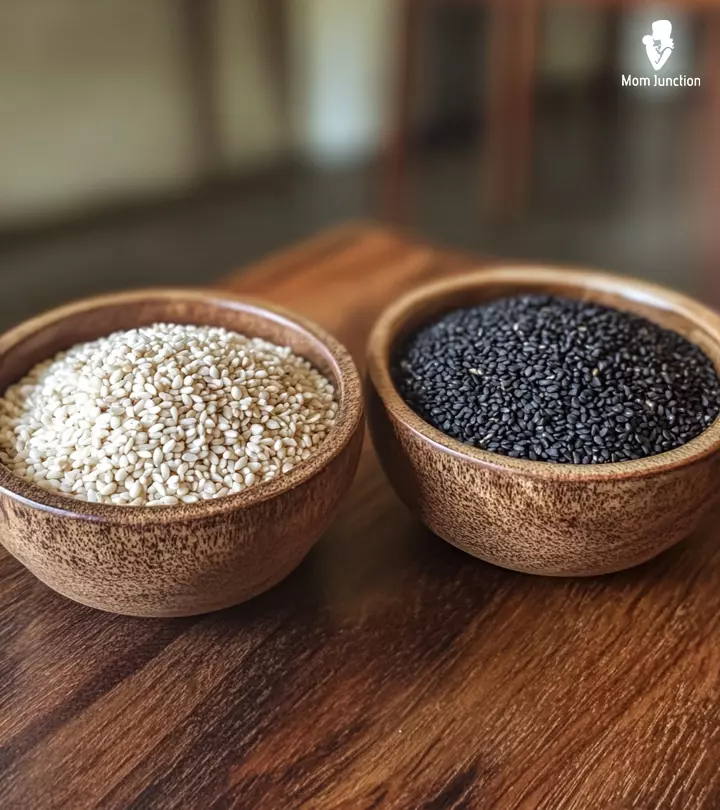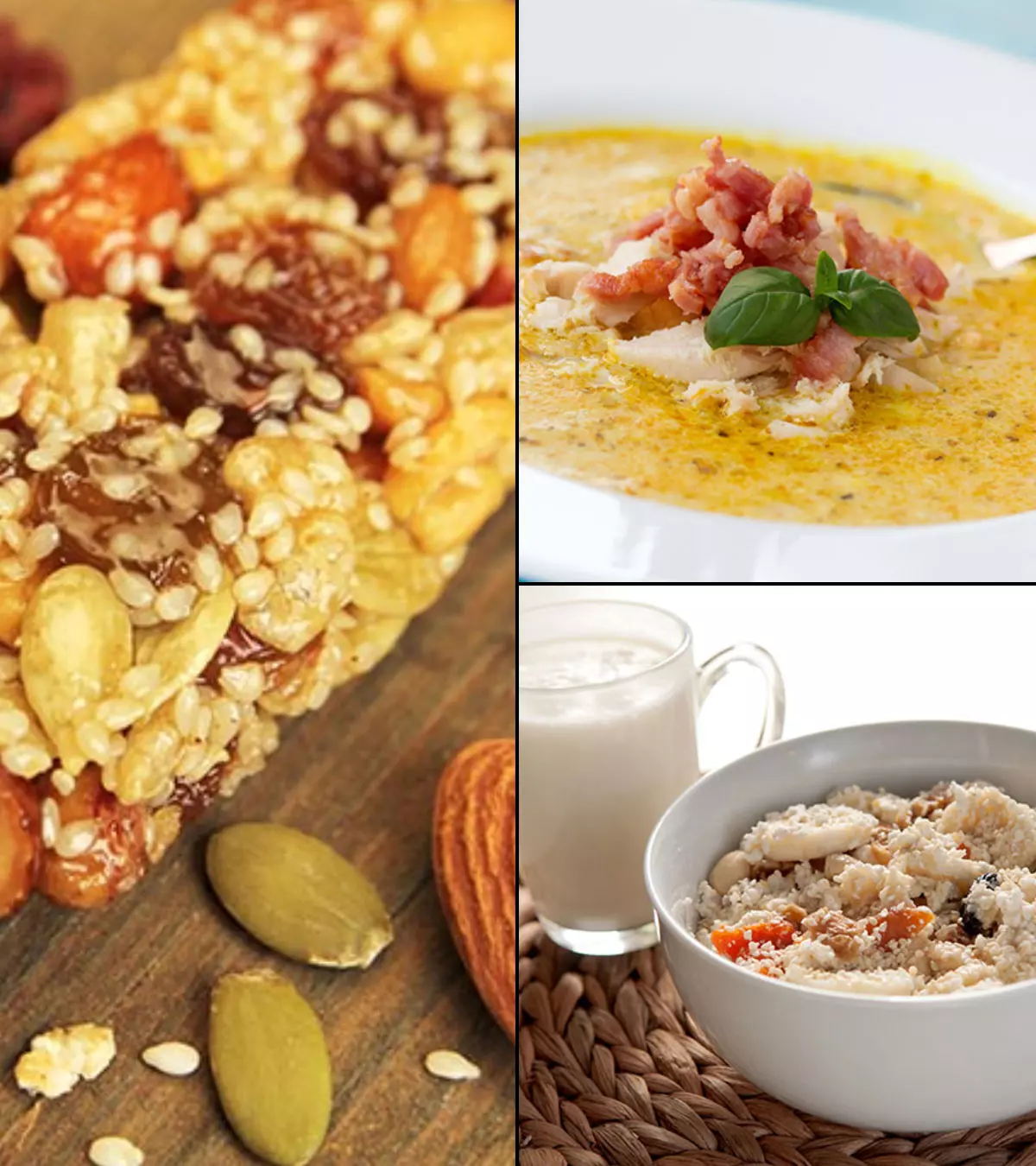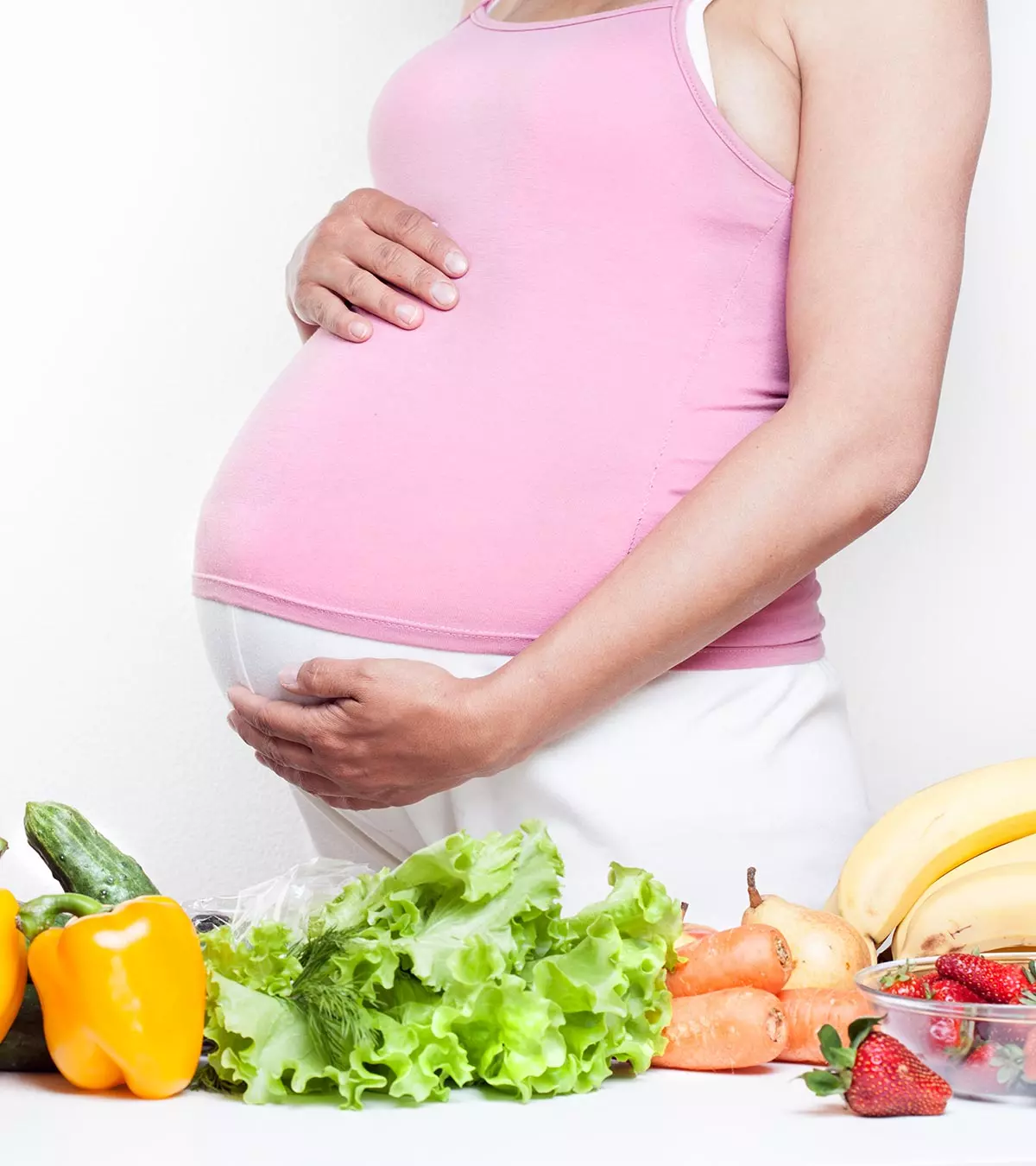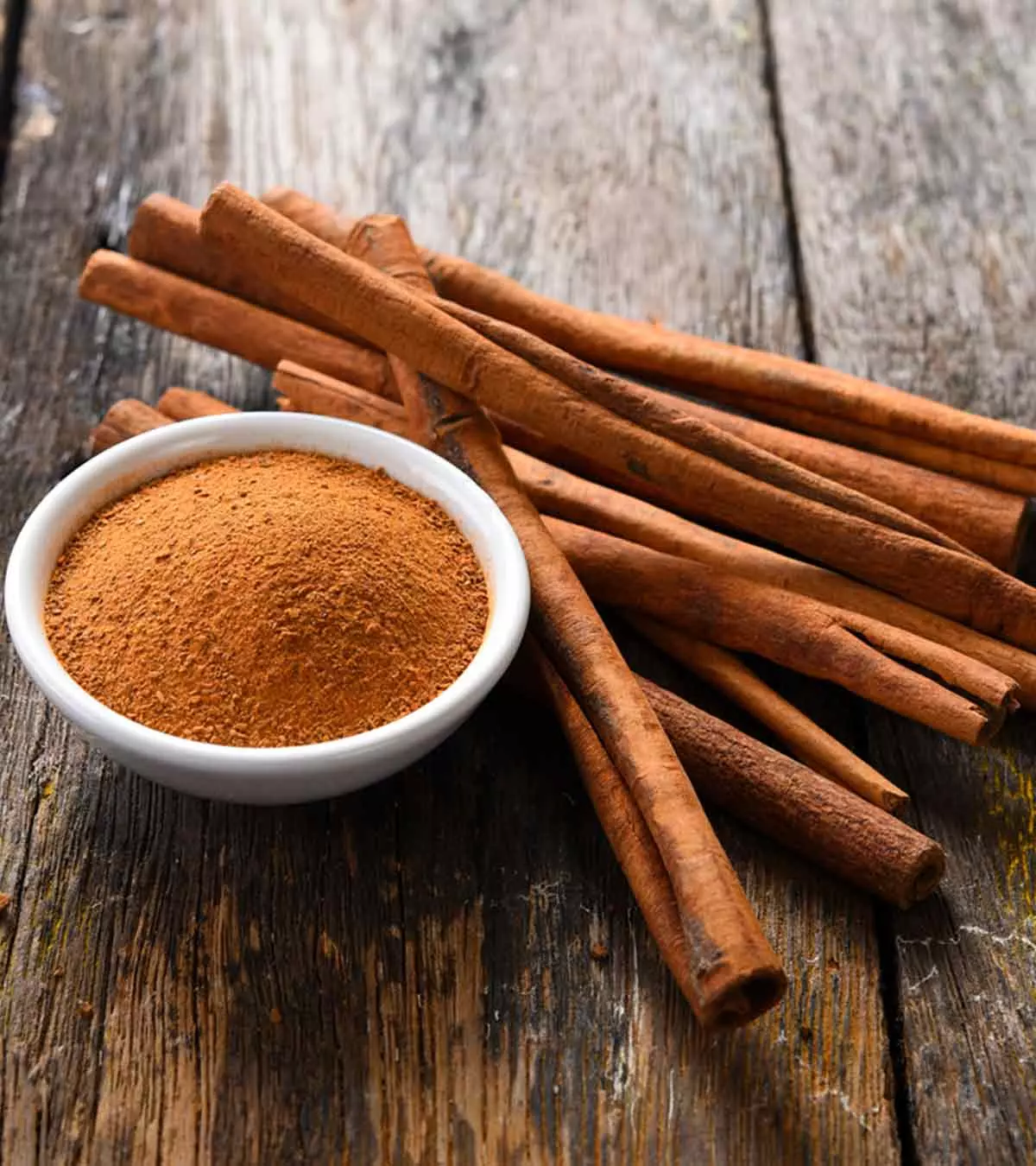
Image: ShutterStock
Fruit jelly is a dessert loved by people across age groups. If you are an expectant mother, you may want to know if it is safe to eat jelly during pregnancy. The hormonal changes of pregnancy and increased cravings can make one want to indulge in a spoonful of that yummy smooth jelly. Continue reading this post as we tell you about the health benefits, side effects, and safety measures to be followed by expecting mothers when consuming jelly.
Key Pointers
- Jelly is a smooth and wobbly clear fruit preserve produced with sugar, pectin, and fruit juice.
- Jelly in moderate amounts is considered safe during pregnancy and can be added to the diet as a treat.
- Fruit jelly contains nutritional fiber, which aids digestion, helps avoid constipation, and can keep you feeling full for longer periods.
- Jellies are rich in antioxidants, can be made from fruits with low glycemic index, and can help alleviate symptoms of morning sickness.
- While jelly might be helpful, it has potential drawbacks, such as glucose spikes, allergy risks, and reactivity to pectin or certain fruits.
What Is Jelly?
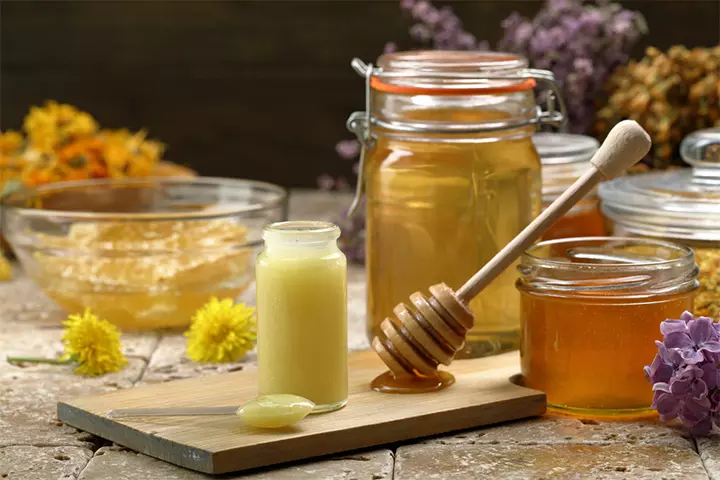
Jelly is a clear fruit preserve made from sugar, pectin, and fruit juice, which gives it a smooth texture. Jelly can hold its shape but wobbles when cut. The wobbling is due to the balanced mix of pectin, sugar, acid, and fruit juice. Depending on the type of fruit, the ratios of these ingredients may vary. It can also be made with or without adding pectin. Moreover, variants can be made based on varying sugar levels, including low-sugar, sugar-free versions, or by adding jaggery. Some people often confuse jelly with jam. Unlike jam, jelly uses only fruit juice, not the whole fruit. Jelly is usually spread on toast, used in pastries, or consumed as a snack as is (1).
Is It Safe To Eat Jelly During Pregnancy?
Yes, it is safe to consume jelly during pregnancy in the form of a snack or treat. It offers many health benefits, and you can include the food in your diet. It aids digestion and controls sugar cravings.
However, as with most foods, anything in excess is bad. It’s important to remember that moderation is key. Consume jelly responsibly to prevent any adverse effects on fetal and maternal health (2).
Also, while you can choose from a variety of jellies, consider making jellies at home. If you opt for store-bought ones, buy organic jellies and carefully read labels for added sugars, preservatives, and potential allergens to avoid any side effects. If you are unsure, it is best to talk to your nutritionist or doctor.
Is Jelly Beneficial During Pregnancy?
Jelly is an ingredient that adds an extra taste to your sandwiches or bread toasts but may not essentially have any benefits. Jelly contains specific nutrients, which are in general beneficial for health. However, there are healthier sources of these nutrients than jelly. You may eat jelly to satisfy your taste and have some incidental benefits.
1. Source of fiber
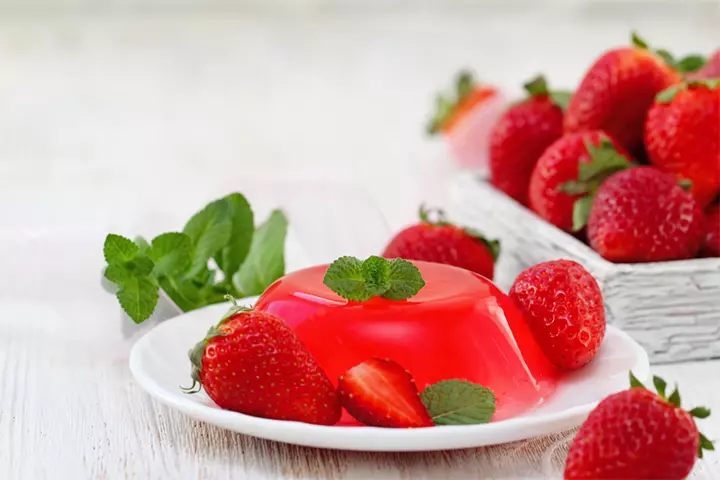
Jelly made from fruits contains fiber that regulates the digestive functioning during pregnancy, thereby keeping constipation at bay. Fiber is a vital element that promotes regularity in the digestion process and helps control cholesterol levels (3).
2. Keeps you full
Jelly fills your stomach quickly and helps you feel full for longer. During pregnancy, you often experience hunger pangs, and jelly intake helps satisfy your appetite.
3. Has antioxidants
Including natural jellies in a well-balanced diet may benefit your health by reducing the adverse effects of oxidative stress. Antioxidants protect cells from free radicals. Natural ingredients in jelly boost their appeal as a functional meal, with possible health advantages beyond basic snacking (4).
4. Boosts energy
Jelly, being high in sugar, can provide a quick energy boost, which may be helpful during physical activities or to combat fatigue; however, moderation is key to avoiding blood sugar spikes (5).
5. Improves cardiometabolic risk factors
In a study, 16 people consumed a portion of mulberry fruit jelly every day for seven days, paired with a high-fat meal. At the end of the study, they had lower levels of low-density lipoprotein (LDL), blood cholesterol, and inflammation. Furthermore, researchers discovered enhanced insulin sensitivity, which is a significant element in lowering cardiometabolic risk. These advantages have been attributed to the anthocyanins in the mulberries, which are recognized for their antioxidant properties (6).
6. Promotes blood sugar stability
Fructose has a low glycemic index, so if jelly is made with it, blood sugar levels will not rise significantly. This helps maintain stable blood sugar levels while eating meals containing this tasty spread (7). In a double-blind study, individuals drank yogurt beverages sweetened with either fruit jelly or sugar. The results showed that the yogurt drink containing fruit jelly lowered blood glucose response, which became more significant as the amount of fruit jelly utilized increased (8).
7. Helps with morning sickness

Jelly may be beneficial for morning sickness because it is easier to digest than other foods. Its smooth texture and sweet flavor may be more pleasant when you feel nauseated (2).
Therefore, consuming jelly is beneficial for both you and your unborn baby as it helps in sufficing the nutritional needs.
Side Effects Of Eating Jelly During Pregnancy
Though jelly is safe to consume during pregnancy, there are a few side effects associated with it

- High sugar content: Excessive jelly consumption may contribute to weight gain and increase the risk of gestational diabetes (5) (9).
- Risk of allergies: Some people may be allergic to the fruits used in jelly, which could cause allergic reactions. Those who suffer from pollen food allergy syndrome (PFAS) or oral allergy syndrome (OAS) should avoid jelly since fruit frequently stimulates their allergies (10).
- Reaction to pectin: People allergic to citrus fruits may react to fruit pectin, triggering an immunological response (11).
- Anaphylaxis: An allergic reaction to fruits such as cherries, grapes, or strawberries can cause anaphylaxis, a severe and sometimes fatal condition (12).
 Quick Tip
Quick Tip- Cross-reactivity: Cross-reactivity between fruits such as grapes, cherries, and strawberries can occur. This can result in a scratchy throat, itchy mouth, and swollen tongue, lips, or throat. Hives around the mouth and ear irritation might also occur (10) (12).
Frequently Asked Questions
1. Is strawberry jelly safe during pregnancy?
Yes, all types of jellies, including strawberry jelly, are safe to consume during pregnancy. Eat in moderation since many jellies have artificial coloring and added sugar. Excessive consumption of sugar in pregnancy may cause a rise in blood sugar levels, leading to gestational diabetes or significant weight gain.
2. What does craving jelly during pregnancy mean?
Craving specific food items, such as jellies, during pregnancy is often due to the hormonal changes in the body during pregnancy. Many women may associate craving specific food items with the baby’s gender or health, but that is not true (13).
Infographic: Delicious Homemade Jelly-Based Dishes For Pregnant Women
Craving something sweet during pregnancy is quite normal and can be satisfied by the consumption of jellies. While it is best to consult with a doctor regarding your consumption quantity and allergies, homemade jellies can be considered safe. This infographic provides some lip-smacking recipe ideas for homemade jellies.

Illustration: Momjunction Design Team
Illustration: Is It Safe To Eat Jelly During Pregnancy?

Image: Stable Diffusion/MomJunction Design Team
References
- How To Make Jelly and Other Jellied Fruit Products.
https://www.aces.edu/blog/topics/food-safety/how-to-make-jelly-and-other-jellied-fruit-products/ - Morning sickness.
https://www.healthywa.wa.gov.au/Articles/J_M/Morning-sickness#:~:text=Stay%20hydrated&text=Suck%20on%20icy%20poles%2C%20frozen,they%20can%20irritate%20your%20stomach - Figueroa, Lilian E., and Diego B. Genovese.; (2019); Fruit Jellies Enriched With Dietary Fibre: Development and Characterization of a Novel Functional Food Product.
https://www.sciencedirect.com/science/article/abs/pii/S0023643819304566 - Piechowiak, Tomasz, et al.; (2023); Antioxidant Activity of Fruit Jellies Enriched With Phytochemicals From Pinus Sylvestris L.
https://www.sciencedirect.com/science/article/pii/S0023643822011975#sec4 - Fruit Jelly.
https://fdc.nal.usda.gov/fdc-app.html#/food-details/2068838/nutrients - On-Nom, Nattira, et al.; (2020); Consumption of Anthocyanin-Rich Mulberry Fruit Jelly With a High-Fat Meal Decreases Postprandial Serum Cardiometabolic Risk Factors in Dyslipidemia Subjects.
https://onlinelibrary.wiley.com/doi/10.1155/2020/1370951 - Nikitin, Igor, et al.; (2019); Comprehensive Assessment of Fruit Jelly With an Improved Carbohydrate Profile Based on Unconventional Plant Raw Materials.
https://jfrm.ru/en/issues/1244/1260/ - Lightowler, Helen, et al.; (2017); Replacement of Glycaemic Carbohydrates by Inulin-type Fructans From Chicory (Oligofructose, Inulin) Reduces the Postprandial Blood Glucose and Insulin Response to Foods: Report of Two Double-blind, Randomized, Controlled Trials.
https://idp.springer.com/authorize?response_type=cookie&client_id=springerlink&redirect_uri=https%3A%2F%2Flink.springer.com%2Farticle%2F10.1007%2Fs00394-017-1409-z - Gestational Diabetes.
https://my.clevelandclinic.org/health/diseases/9012-gestational-diabetes - Pollen Food Allergy Syndrome,
https://acaai.org/allergies/allergic-conditions/food/pollen-food-allergy-syndrome/ - Citric acid and citrus allergy.
https://www.aaaai.org/allergist-resources/ask-the-expert/answers/old-ask-the-experts/citric-acid-citrus-allergy - Anaphylactic reactions to cherries, strawberries, and grapes.
https://www.aaaai.org/allergist-resources/ask-the-expert/answers/old-ask-the-experts/anaphylactic-reactions-cherries-strawberries - What Your Pregnancy Food Cravings Really Mean.
https://atriumhealth.org/dailydose/2019/07/10/what-your-pregnancy-food-cravings-really-mean
Community Experiences
Join the conversation and become a part of our nurturing community! Share your stories, experiences, and insights to connect with fellow parents.
Read full bio of Shivani Sikri
Read full bio of Ria Saha
Read full bio of Swati Patwal
Read full bio of Lorraine Teron











